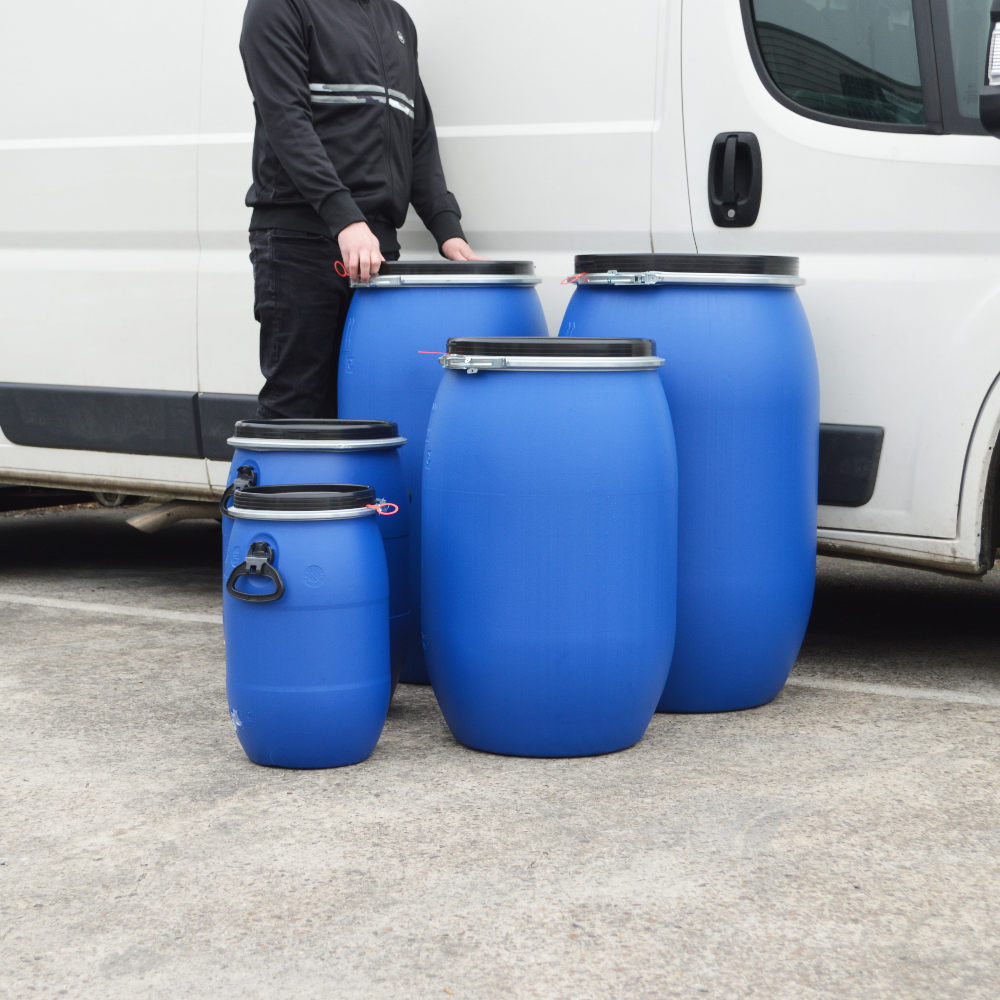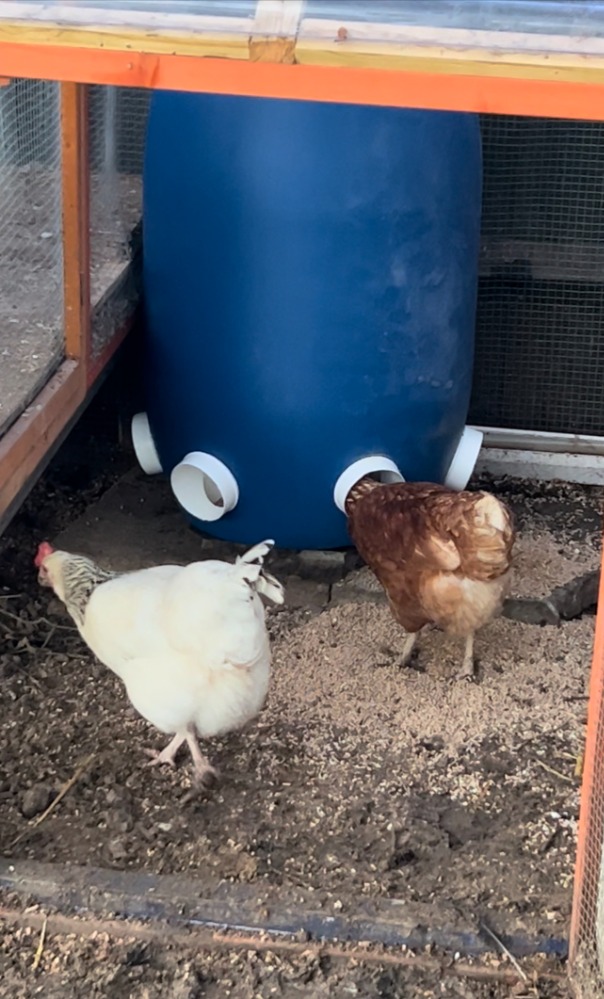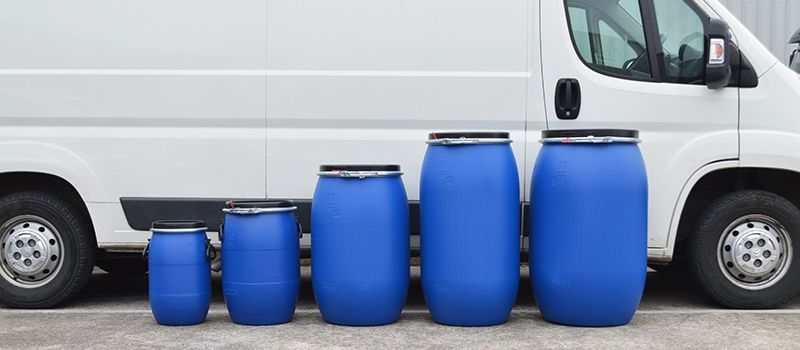Originally, barrels were created from wood and metal. Their construction was perfected over the years requiring no glue or nails to build and created a reliable and leak proof liquid storage solution. This iconic wooden barrel is still used nowadays in the wine and whiskey industry.
In the early 1900s, wood was replaced by steel, a more durable and easily machined material.
Steel barrels were not only stronger and safer for use in transport, but they were manufactured on an assembly line, hence using less labour than what was required in the manufacturing of the wooden barrels. The steel drum is still widely used for liquid storage and transportation to this day.
In the late 1960s more advanced technology and manufacturing practices meant the evolution of the barrel from steel to plastic. Plastic barrels are made from high density polyethylene (HDPE).
HDPE, a polymer-based plastic, which doesn’t react with many common materials, and won’t react with many chemicals and substances. This makes it perfectly suited for an industrial role, especially if you consider that some materials, including food products, can even break down steel.
Why are plastic barrels traditionally blue?
Have you ever wondered why the plastic drums are usually blue? Have you ever seen a drum that is not blue?
You’ll be surprised to know that some barrels have a natural semi-transparent colour, in order to be able to see the levels of material in the barrels. However, these are not UV resistant and therefore are not suitable for outdoor storage.

Black drums are not as popular, as they are not food-grade because of the manufacturing process. In fact, black pigment is often created by mixing various colours in a recycling process and there is no way to know as to what the previous plastic material was used for. However, you’ll see some black plastic barrels around, especially if they are made for a specific use.
The blue pigment in polyethylene drums has a higher UV light resistance, thus allowing the drums to become more versatile. For example, the UV resistance makes drums suitable for food storage and this is why the blue drums became the industry standard for food storage.
What are the benefits of using the plastic drums?
Blue plastic barrels are normally used for storage and transportation of industrial goods.
Firstly, they are very cost-effective, secondly, they are incredibly versatile, as can be used for all sorts of industrial materials, such as dried food, powders and liquids for the food industry, corrosive substances and hazardous chemicals, acids, lubricants, oil, and cleaning materials.
They are also very durable and can last many years before they need replacing, while a wide range of fittings and attachments, such as clamps, trolley and drum heater jackets provide an even wider scope for use, as heavy drums can easily be lifted and moved or goods inside can be kept at temperature to prevent them going off.
It’s important to know that plastic drums are also re-usable, which means that, after a thorough cleaning and decontamination, you can reuse them as many times as you like. Obviously, it’s not advisable to use barrels that have previously stored chemicals for storing food or drinking water, even if they’ve been thoroughly cleaned. If barrels are needed for different substances, then it’s advisable to use new plastic drums for each liquid.
Not only plastic drums can be re-used, but they can also be repurposed, as the mouldability of HDPE allows for the drums to be changed according to the new use. For example, one of our customers has used the plastic drum as a chicken feeder. Another customer has used our plastic drum as a dust collector in his workshop as part of a dust collection system.

Finally, if the drums have reached the end of their lifecycle, they can be recycled as they are made of high-density polyethylene (HDPE), but they would need to be cleaned and decontaminated before recycling them. However, we expect the drums to last a very long time, considering the nature of HDPE being strong and durable, so the best option would be to either re-use them or repurpose them.
We would love to know how you use our plastic barrels. Feel free to send us pictures at marketing.department@kingfisherdirect.co.uk.

